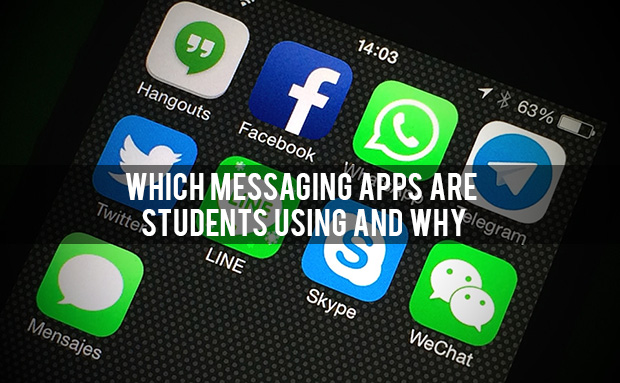Messaging apps: Why international students prefer to use one over the other
WHAT makes WeChat better than WhatsApp for some international students? Why can’t we all just use one messaging app? Trinity College Foundation Studies students Jolyn Ang Jing Ting, Bhavish Mahesh Harjani and Tracy Du Yunxi investigate and ask these questions and more.

Photo: Álvaro Ibáñez via Flickr
Whatsapp, Telegram, KakaoTalk, Viber… With so many messenger apps flooding the market these days, keeping track of conversations has never been easier.
Yet with the amount of free-to-use messaging apps available for download, why is there no one ubiquitously used communication app? Unlike Facebook, Twitter or Instagram which have, for the most part, monopolised the social media landscape on a global scale, messenger apps like those mentioned above don’t always travel beyond borders.
Take for example KakaoTalk: the messenger app is hugely popular in South Korea and while it is used in other parts of the world, there is still a large portion of people out there who have never heard of the service and see no need to jump onto it. The same could also be said of WeChat, China’s most popular messenger app.
It seems clear that certain messenger apps work well with particular communities from different nations but what are the reasons why a Chinese student would prefer to use WeChat as opposed to others who prefer Whatsapp?
With this in mind, we wanted to know what apps international students were using to communicate with each other and why.
A survey of 100 different students from Trinity College Foundation Studies (TCFS) was conducted and revealed that Whatsapp and WeChat were among the most popularly used services.
Students who said they used WeChat were mostly from China while students who only used LINE chat, an app predominately used in Japan, interestingly constituted mainly of Indonesians. The remaining surveyed were WhatsApp users.
For TCFS student Karena Kwong, she says: “The main reason why I prefer WhatsApp is because my purpose is simply to text.”
When compared to LINE and WeChat, which offer users more features like games, Karena feels she doesn’t need all the additional features as it “slows down the app and takes up unnecessary data”.

What apps are you using to chat with your friends and why? | Still from ‘Wonderful World End‘ (2015, dir. Daigo Matsui)
Chinese students meanwhile prefer WeChat because of its convenience. Functioning also as a social networking platform, WeChat is the Facebook of China as government intervention has made it difficult for Chinese users to access the globally used social networking site. Like Facebook, WeChat allows users to post photos, send messages and make both video and voice calls.
Additional features like stickers, GIFs and emojis also make WeChat more enticing to Chinese students and when they head back home, it can also be used to buy less-expensive movie tickets. You can even transfer money to friends through it.
All this is to say that geography does indeed play a big part in determining what students enjoy using, especially if all their friends are on those apps, but at the end of the day, it all comes down to whether an app meets the student’s needs. While WhatsApp is mainly used for efficiency and convenience, others like LINE and WeChat offer a suite of features and functions that give users more variety to pick and choose how they want to communicate.
But rather than worry about who’s on what or which app not to use, perhaps it would be much easier if there was just one app that everyone could use, regardless of boundaries.
What kind of messaging apps do you use and why? What makes one better than the other? Is it convenience or is it something more? Give us your thoughts in the comments below.
This story was produced by Media and Communication students at Trinity College Foundation Studies as part of Meld’s community newsroom collaboration. Education institutions, student clubs/societies and community groups interested in being involved can get in touch with us via meld@meldmagazine.com.au.

